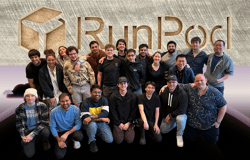At Google DeepMind, we value diversity of experience, knowledge, backgrounds and perspectives and harness these qualities to create extraordinary impact. We are committed to equal employment opportunity regardless of sex, race, religion or belief, ethnic or national origin, disability, age, citizenship, marital, domestic or civil partnership status, sexual orientation, gender identity, pregnancy, or related condition (including breastfeeding) or any other basis as protected by applicable law. If you have a disability or additional need that requires accommodation, please do not hesitate to let us know.
Snapshot
The Canopy Team conducts foundational and applied research aimed at improving the trustworthiness of Google's most capable AI models and most important products. To achieve this, the team adopts a "full stack" research strategy that encompasses content understanding (data), novel pre-training and post-training modeling strategies (recipes and architectures), and novel benchmarks (evaluation).
Join our team as a Research Scientist, based in either Mountain View, CA or New York, NY.
About Us
Artificial Intelligence could be one of humanity’s most useful inventions. At Google DeepMind, we’re a team of scientists, engineers, machine learning experts and more, working together to advance the state of the art in artificial intelligence. We use our technologies for widespread public benefit and scientific discovery, and collaborate with others on critical challenges, ensuring safety and ethics are the highest priority.
The Role
Research Scientists at Google DeepMind lead our efforts in developing novel algorithmic architecture towards the end goal of solving and building Artificial General Intelligence.
This role will involve conducting cutting-edge foundational and applied research related to:
- data: advance the state-of-the-art in data representations via advancements in content understanding, synthetic data, etc.
- modeling: develop transformative modeling advances in pre-training, supervised fine-tuning, reinforcement learning, and retrieval augmented models
- applications: deploy groundbreaking solutions that drive real-world impact across Google’s products and services
Key responsibilities:
- Conduct novel research related to trustworthy AI systems, with a focus on data, modeling, and applications.
- Deploy groundbreaking solutions to drive real-world impact.
- Engage with the external research community by publishing, attending conferences, giving external talks, etc.
About You
In order to set you up for success as a Research Scientist at Google DeepMind, we look for the following skills and experience:
- PhD in a technical field or equivalent practical experience.
- Track record of research publications related to generative AI and/or large language models.
In addition, the following would be an advantage:
- Practical experience developing and deploying novel generative AI algorithms that solve real-world problems
The US base salary range for this full-time position is between $161000 - $245000 + bonus + equity + benefits. Your recruiter can share more about the specific salary range for your targeted location during the hiring process.
Top Skills
What We Do
We’re a team of scientists, engineers, machine learning experts and more, working together to advance the state of the art in artificial intelligence. We use our technologies for widespread public benefit and scientific discovery, and collaborate with others on critical challenges, ensuring safety and ethics are the highest priority.
Our long term aim is to solve intelligence, developing more general and capable problem-solving systems, known as artificial general intelligence (AGI).
Guided by safety and ethics, this invention could help society find answers to some of the world’s most pressing and fundamental scientific challenges.
We have a track record of breakthroughs in fundamental AI research, published in journals like Nature, Science, and more.Our programs have learned to diagnose eye diseases as effectively as the world’s top doctors, to save 30% of the energy used to keep data centres cool, and to predict the complex 3D shapes of proteins - which could one day transform how drugs are invented.






